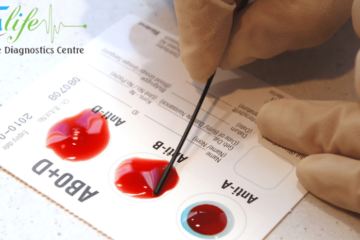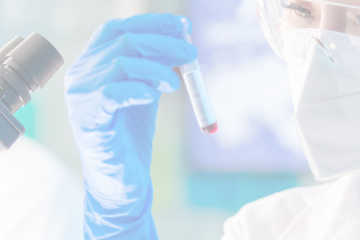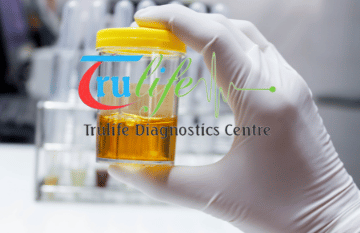
Exciting Step: Your First Pregnancy Scan In Hyderabad
A pregnancy scan is something that fills you with excitement as well as fear. This includes an early pregnancy scan which is done through ultrasound technology, ensuring no harm to the mother or the unborn baby. At Trulife Diagnostics Centre, we perform all the timely pregnancy scans needed to detect anomalies in the baby.

How is a Pregnancy Scan done?
An ultrasound scan is done through sound wave technology that hits hard surfaces in the body and bounces back to produce imagery. This is radiation and needle-free, hence causing no pain or distress to the mother and her child alike.
In this process, a trained professional called a sonographer applies gel on the abdomen of the mother and uses a transducer or probe to make imagery on a screen. The gel is transparent and unharmful and facilitates the sound waves to transmit swiftly. Sometimes a sonographer presses the probe gently to produce better images, but it generally does not cause pain.
What is the Need for a Pregnancy Scan?
A pregnancy ultrasound is performed after every three months or trimester to check the growth of the baby or any congenital anomalies. Congenital anomalies are special conditions or anomalies in a child such as defects in body parts or Down syndrome.
Pregnancy scans are also done to ensure the mother’s health, the position of the placenta, counting of embryos (that determines the number of babies a mother can deliver), and discovery of the sex of the child which is legal in many countries but not in India. Trulife Diagnostics Centre performs all the pregnancy scans at ease and our trained radiologists give a good analysis of the child and the mother’s health.
More or less these are reasons why pregnancy scans have become a need:
- To check the baby’s heart rate and development
- The delivery date
- Number of embryos (determines whether you’re going to have a single child, twins, triplets, and more)
- Mother’s health and its effects on the child
- Position of placenta
A pregnancy scan helps in preparing the mother, her family and the doctor for the delivery day, keeping both mother and child safe. These scans also help in determining the mother’s health post-delivery.
Stages of Pregnancy Scan
Once you miss your period, you can check if you are pregnant or not. After confirming your pregnancy, your early pregnancy ultrasound is divided into three trimesters i.e. the gap of every three months.
First Trimester: Your first pregnancy ultrasound happens after three months of pregnancy to see the development of the embryo. It checks if your embryo is growing inside the fallopian tube or the uterus. This pregnancy scan is crucial because it is the first step towards your motherhood journey and can tell your due date.
Second Trimester: By the time you are pregnant for around 18 weeks, your baby develops crucial organs and body parts such as limbs, brain, and spine. This pregnancy ultrasound is done between the 18th and 20th week to check the development of organs and the position of the placenta.
Third Trimester: Third and the final pregnancy scan is performed after 30 weeks of pregnancy, to check if the placenta is not blocking the cervix which can cause some complications during the delivery of the baby. However, this should not be a matter of worry.
Other than the scans, a mother is also required to go through a urine test to check her sugar and protein levels. A mother with diabetes may require extra care for the delivery of the baby. This test helps in deciding crucial delivery decisions such as caesarean or normal delivery of the baby. All these tests are performed at Trulife Diagnostics Centre in Hyderabad with ease.
Types of Pregnancy Ultrasound
Some pregnancy tests are performed on the surface level, on the skin but some tests need inside intervention. These scans usually take 30 minutes to an hour. Here are three such tests:
1. Transabdominal Ultrasound: This pregnancy ultrasound requires you to drink plenty of water to keep the bladder full and produce better images. A sonographer applies gel to your abdomen area and moves the transducer firmly to cover all the crucial parts.
While the scan is happening, you can see your baby on the monitor or screen attached to the probe/transducer. During and before this test, avoid using the restroom.
2. 3D Scans: This scan produces three-dimensional images of the foetus that help in seeing its organ development. When normal scans do not give a clear picture of the unborn child, a 3D scan is recommended. A 3D scan is done between weeks 26 and 30.
3. 4D Scans: A four-dimensional scan is a 3D scan in motion. With this scan, you can watch your baby moving which will fill you with happiness. This scan is also conducted between weeks 26 and 30.
4. Transvaginal (TVS) Ultrasound: Sound waves do not travel in the air. The reason why ultrasound is not performed for any lung-related problem. Due to constant bowel movements, the air may be present in your testing area which causes hindrance in in your pregnancy ultrasound.
Under such conditions, clear images inside the uterus are quite difficult to extract. Hence, a vaginal ultrasound is conducted. In this, a probe with lubricant gel on it is slowly inserted into a pregnant woman’s body. Because of the gel on the slender probe, the process is generally unpainful. However, if you are allergic to latex, do inform your sonographer before the scan is conducted.
5. Foetal Doppler Scan: Conducted between weeks 28 and 32, this scan monitors the foetal’s heartbeat. This helps in determining the foetus’s growth and any congenital anomaly.
While going through a scan, you can take your husband or other family members. However, it is not recommended to bring children to the diagnostics centre. At Trulife Diagnostics Centre, we perform all types of pregnancy scans.
Schedule your appointment with Trulife Diagnostics Centre to get your scan done at the most affordable prices, and timely delivery of the reports. Contact us to book your scan now!



